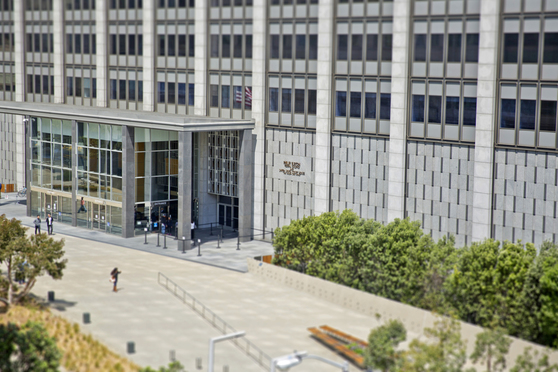 450 Golden Gate, United States District Court for the Northern District of California (Jason Doiy)
450 Golden Gate, United States District Court for the Northern District of California (Jason Doiy)
SAN FRANCISCO—The U.S. District Court for the Northern District of California on Monday announced a new rule requiring the automatic disclosure of third-party funding agreements in proposed class-action lawsuits, walking back from an earlier proposal for broader transparency requirements.
The rule change, which was made through an amendment to the standing orders for all judges at the court, is likely to have limited ramifications for major litigation funders in the United States, including Burford Capital and Bentham IMF, which typically do not fund class-action lawsuits.
“It really doesn’t impact us at all,” said Matthew Harrison, an investment manager and head of Bentham’s office in San Francisco. “I think the rationale is probably to assist the judges in determining settlement of class actions … or figure out if a funder is taking money from a class.”
While limited in scope, the rule is still groundbreaking: No U.S. district court has yet adopted a rule requiring the automatic disclosure of funding agreements of any kind, according to observers of the industry.
Most state bar rules prohibit attorneys from splitting fees with nonlawyers, making it difficult for investors to take a stake in class litigation. Still, some funders do bankroll class actions. Last August, it was disclosed that Therium, a litigation finance firm based in the U.K., had invested $1.7 million a class action against Chevron that was pending in the Northern District of California.
In a statement, a Burford representative said class and collective actions represent a small part of the firm’s business and the litigation funding industry.
“[W]e do not anticipate any hardship as a result of the rule, and we think the court ultimately will learn that the use of funding (whether from a bank or specialty provider) for law firms in connection with those types of cases is fairly commonplace,” the Burford statement continued.
The court’s Civil Rules Committee, chaired by Judge Richard Seeborg, had proposed a broader rule that would have required the automatic disclosure of funding agreements in any matter before the court. Burford and Bentham opposed the proposal, arguing that it would invite lengthy and expensive discovery fights.
Lynn Fuller, a spokeswoman for the court, said in an email that the changes were made in a recent judges’ meeting, acting upon the recommendations of the rules committee. The changes were posted on the court’s website Monday afternoon and amend the section of the standing orders for all judges that guides normal disclosures of non-parties with an interest in a case. It reads that “in any proposed class, collective or representative action, the required disclosure includes any person or entity that is funding the prosecution of any claim or counterclaim.”
The development is an incremental victory for the U.S. Chamber of Commerce, which has generally opposed third-party funding and called for greater transparency. Lisa Rickard, president of Chamber’s Institute for Legal Reform, had earlier called for the adoption of the original Northern District proposal, saying it “would be a major step in the right direction.”
Justin Hakes, a spokesman for the chamber, said he was not immediately able to comment on the new rule.
Contact Ben Hancock at [email protected]. On Twitter: @benghancock
This content has been archived. It is available through our partners, LexisNexis® and Bloomberg Law.
To view this content, please continue to their sites.
Not a Lexis Subscriber?
Subscribe Now
Not a Bloomberg Law Subscriber?
Subscribe Now
LexisNexis® and Bloomberg Law are third party online distributors of the broad collection of current and archived versions of ALM's legal news publications. LexisNexis® and Bloomberg Law customers are able to access and use ALM's content, including content from the National Law Journal, The American Lawyer, Legaltech News, The New York Law Journal, and Corporate Counsel, as well as other sources of legal information.
For questions call 1-877-256-2472 or contact us at [email protected]




